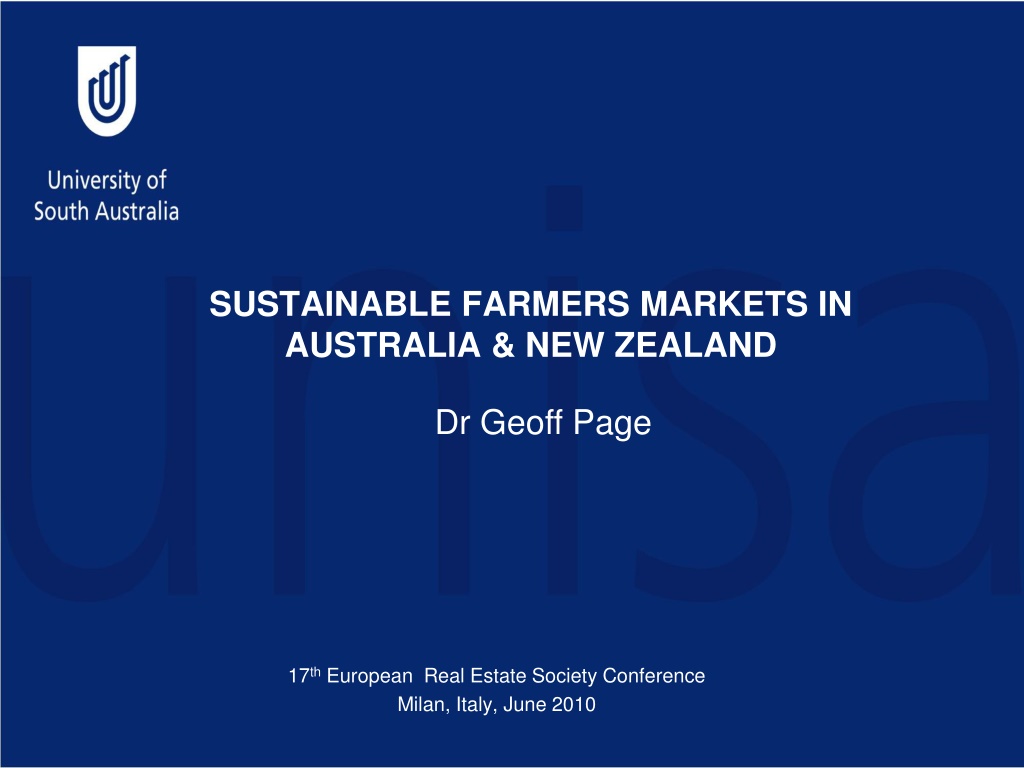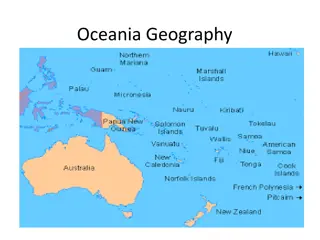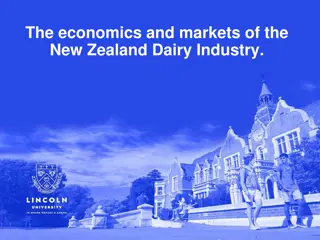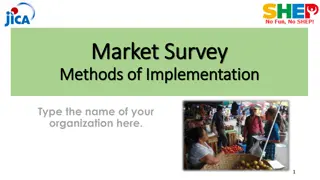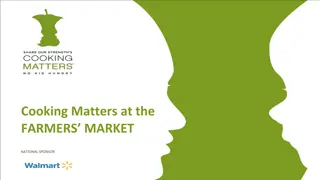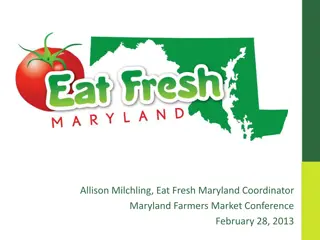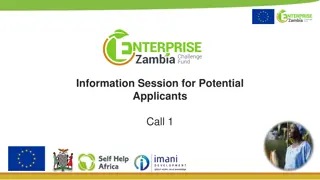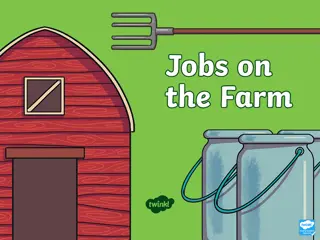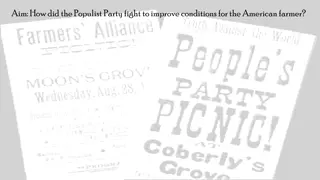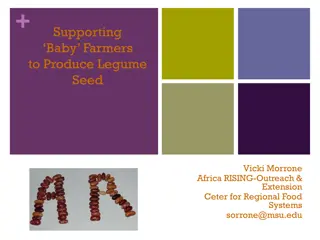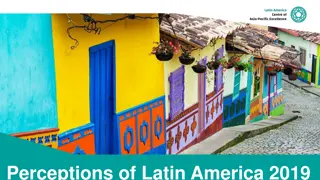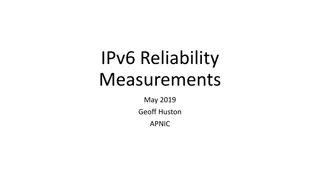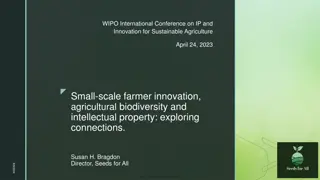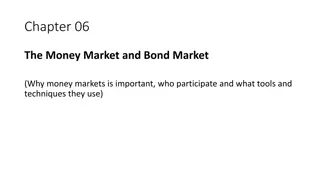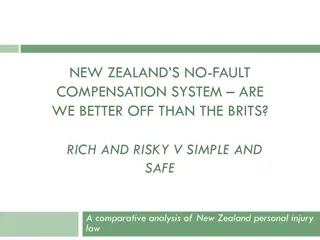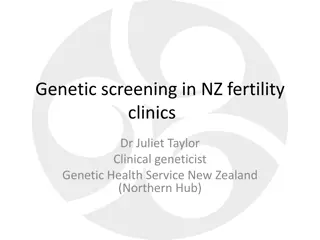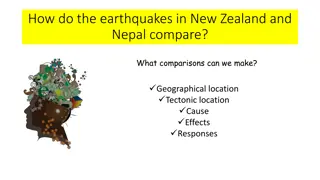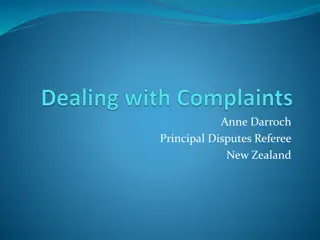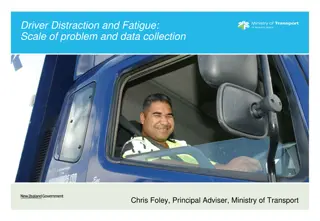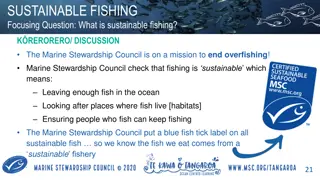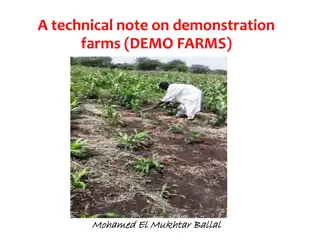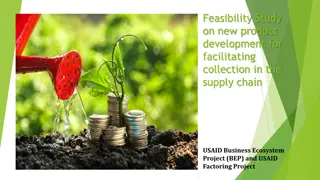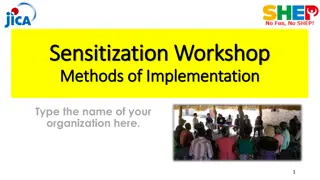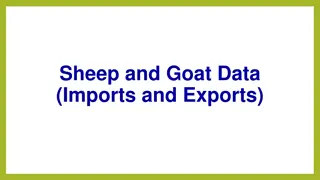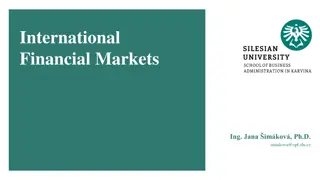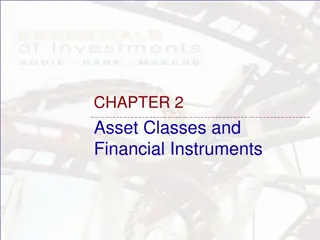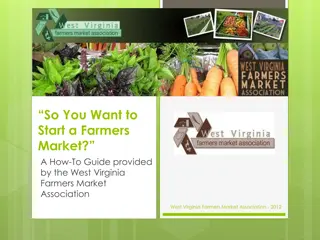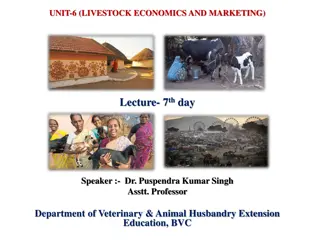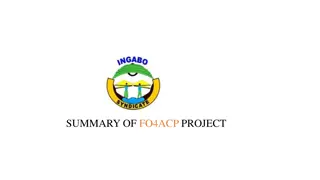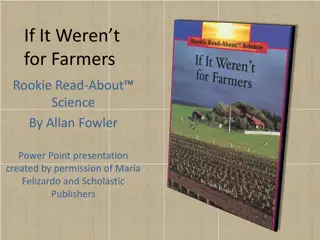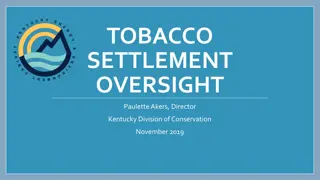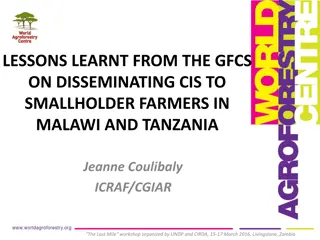Sustainable Farmers Markets in Australia & New Zealand - Insights from Dr. Geoff Page
Explore the sustainable practices and thriving growth of farmers markets in Australia and New Zealand, as presented by Dr. Geoff Page at the 17th European Real Estate Society Conference in Milan. Discover the importance of community support, local economy, environmental conservation, and direct consumer-producer connections in these markets through engaging visuals and insightful discussions.
Download Presentation

Please find below an Image/Link to download the presentation.
The content on the website is provided AS IS for your information and personal use only. It may not be sold, licensed, or shared on other websites without obtaining consent from the author. Download presentation by click this link. If you encounter any issues during the download, it is possible that the publisher has removed the file from their server.
E N D
Presentation Transcript
SUSTAINABLE FARMERS MARKETS IN AUSTRALIA & NEW ZEALAND Dr Geoff Page 17thEuropean Real Estate Society Conference Milan, Italy, June 2010
Introduction Farmers markets consumers Market constitution Market rules Sustainable model Site selection Market mix Market layout Market manager Authenticity of produce Market promotion conclusion Slide 3
Introduction Growing rapidly Australia 120 +, USA 3000+,UK 500+,NZ 50 A predominantly fresh food market that operates regularly within a community , at a focal public location that provides a suitable environment for farmers and food producers to sell farm originated and associated value added processed foods direct to customers Slide 5
Farmers market consumers Foodies Mature woman Those concerned with power of supermarkets Those concerned with sustainability-food miles- organic or biodynamic or IPM Been a bit upmarket in Australia but some of United States markets accept food stamps Slide 6
10 reasons to shop at your Farmers' Market 1. Know where your food comes from. 2. Connect with the seasons through flavourful fresh produce 3. Support local farmers and artisan producers 4. Help promote responsible land use and preserve our cultural heritage 5. Do the environment a favour, reduce food miles 6. Enjoy the regional bounty brought to you with love and care 7. Contribute to the local economy 8. Give your body a hug with healthy food and the occasional treat 9. Get to know the best farmers, growers and food makers in the Waikato 10. Meet friends, enjoy the music and market fanfare Slide 7
Important measures of positive influences Slide 8
Market constitution Community not for profits Farmers, value adders & community Objectives to promote sustainability, education of consumers, promote diversity, promote community Committee should have range of skills & ability to co-opt skills Should contain very little regulation as constitutions are hard to change Slide 10
Market rules Where the regulations are Time of operation, membership, stallholder rules and responsibilities, fees, complaint processors and natural justice procedures Market rules are similar to lease conditions Provide licence to trade, generally only for 12 months and not transferable Slide 11
Private farmers markets None in New Zealand A few in Australia In USA- Washington - Bernice Prince runs many with a turnover of $7.5m Slide 12
Sustainable model Markets often run by volunteers that burn out Sensible rents-not charity rents Membership model provides another source of revenue, 2000 ASFM, 1700 WFM, 500 VHFM & 550 at AHFM Membership fee from $40 to $60 10 % discount to members-built into pricing Sponsorship from government & business wanting to promote, green, community & healthy life styles Government grants-eg KIK Slide 13
New Zealand Does not have membership model Has several markets around Auckland that are 25-30 stalls This means basically uneconomical to employ staff Slide 14
stall fee(35) Stall fee (40) Site $7.14 market manager 36.00 31.50 other site costs 3.60 3.75 workcover 1.00 1.00 office rent 3.43 3.00 office supplies 1.57 1.38 travel/parking 2.74 2.40 accoutant/insurance 3.43 3.00 committee development 2.06 1.80 incidentals 1.42 1.25 Events 8.57 7.50 market infrastructure 9.42 8.25 promotion 8.68 7.62 cost per site 89.06 78.70 $6.25 Sponsorship 14.85 13.00 grants 5.71 5.00 membership-600 16.15 13.00 $ 36.71 $ 31.00 rent to charge $ 52.35 $46.70 Slide 15
Site selection Central community location Good visibility Traffic flow Parking access all weather options Room for expansion Infrastructure of power & water Toilets Disability considerations Good spots for coffee & eating in all weather Slide 16
Market mix Will change with seasons Need most of peoples food needs that still meet market rules requirements What is local ? Selection criteria-points system based on freshness, sustainable farming practices & proximity to market Value adders need as much as possible local ingredients Problem if only approve part of product range Slide 17
Market layout Proximity to power & water Location with respect of sun or shade Vehicles that are required onsite-refrigeration, bulky produce Potential research options Slide 18
Market manager Significant role-especially so volunteers only required for small bits Functions include stallholder recruitment & approvals stall holder audits, production of seasonal calendar, stallholder & member communication, market promotion, finance management, member recruitment & market day set-up & close down. Market performance statistics Suit property graduate or tourism & event management graduate Slide 19
Authenticity of produce What separates a farmers market from others- need to protect the brand Difficult & expensive-need to understand production Concept of authentic market-USA, NZ, Vic Push pull problems lead to cheating Sustainable practice accreditation Slide 20
New Zealand Authentic Farmers Market Certified local producer certified local stallholder cover local person processing product not grown in region- flour for bread, coffee Slide 21
Australia Concerned with production authentication-not production methods-recent problems in UK where one livestock producer was extremely bad-not good for image Victoria has started auditing of stalls- some resistance at first Other states do not have state organisation-but working on it. In S.A.- each market doing its own checking with various degrees of vigour Slide 22
Earth Market Milan May use concept of guest stall to allow produce in-at Milan Earth market had guest stall from Sicily Slow food movement sign off initially on providence , etc but no follow up audits Slide 23
Market promotion Lots of media stories-rather than lots of advertisements Linked to market or stallholders-see next few slides as examples Market signage Slide 24
KIK Slide 25
Market promotion Slide 26
How to get farmers to grow for farmers market Issue of producing vegetables & lesser extent fruit Reverse the trend of large food miles, all varieties available 24/7 large producers who do not want to get involved as too much effort-we have some mid sized producers just supplying markets Lost skills Milan is hoping to feed Milan by 2015 in time for conference of feeding people , using less energy & treading light on planet. Slide 27
Future & current research Market layout in not for profit context Market mix in not for profit context How to get farmers to grow for farmers market Slide 28
questions Slide 29
